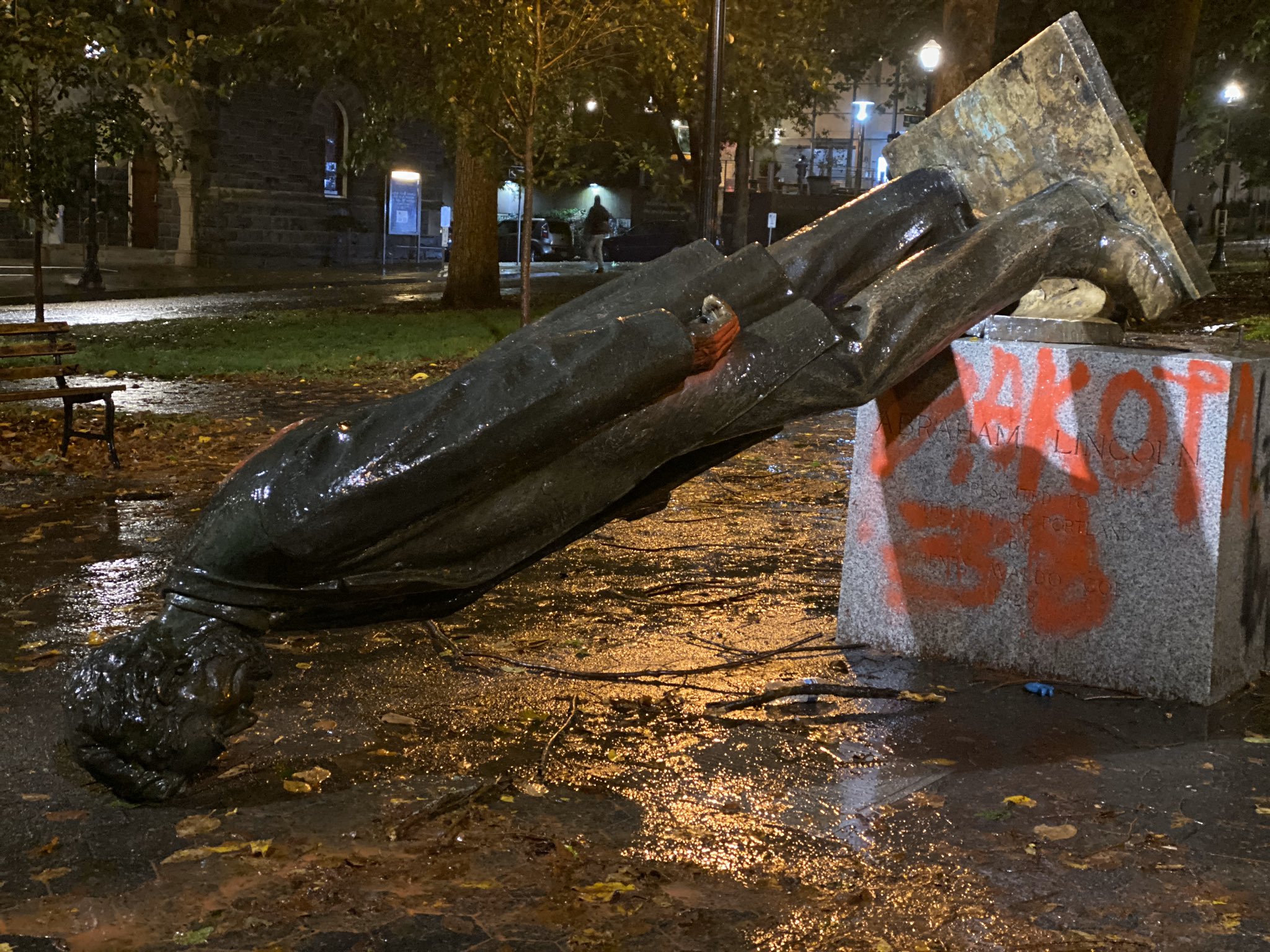
Protesters in Portland toppled multiple statues, including this one of President Abraham Lincoln, on Sunday, Oct. 11, 2020, during an event they called "Indigenous People's Day of Rage." A committee recently presented recommendations to the city on how it should conduct public engagement around its monuments.
Sergio Olmos
Five Portland monuments, including statues of three U.S. presidents and a former Oregonian editor, were toppled during the racial justice protests of 2020.
Their removal prompted calls from some city and community leaders for a robust public engagement process around the city’s approach to its monuments.
A committee of artists, educators, urban planners and public historians has been meeting for the last six months to determine what that process should look like. They presented their recommendations in a report to the city earlier this month.
Jess Perlitz is the head of sculpture at Lewis & Clark College and led the Monument Engagement Process Committee. She said the goal was to create space for a diversity of opinions among community members about what the monuments represent.
“Across totally vast political divides, the thing we can all agree (on) is that history matters,” Perlitz said. “Is there a way that we can do some deep public engagement work that can allow for us to continue to have these differing opinions and hold that kind of conflict?”
The committee’s recommendations fell into four broad categories: walking tours and scavenger hunts, public talks, arts programming and an archive of the ongoing conversation around the city’s monuments.
They also recommended the city create a website to house information about the monuments and the ongoing public engagement process.
Perlitz said that without a strong effort to hear community voices, the city could create a similar environment of outrage when it makes a decision about whether the toppled monuments should be reinstated.
“If we seek to try and resolve the conflicts leading to these monuments having come down in the first place, we’re going to get nowhere,” she said. “But if we think about using that conflict as a way to actually dig in, to engage… there’s a hope that that transforms the landscape.”
The city recently received a $350,000 grant it says will allow it to invest in the strategies the committee recommended.
No date has been set for the city to decide on the committee’s recommendations, but Perlitz hopes they inform the city’s eventual decision on what to do with the toppled monuments.
“Maybe those monuments stay, maybe they change, maybe something augments them, maybe they come down,” she said. “But regardless, there’s a way in which the histories are honored through that and that we allow for change.”
Jess Perlitz, leader of the Monument Engagement Process Committee, spoke to “Think Out Loud” Dave Miller. Click play to listen to the full conversation:



